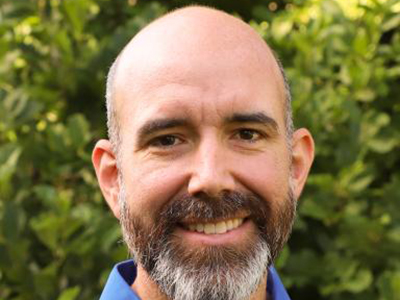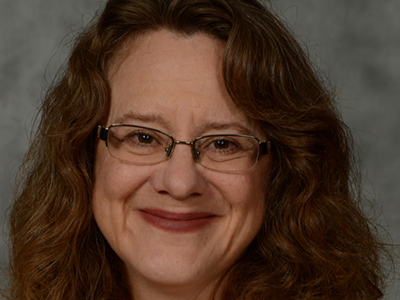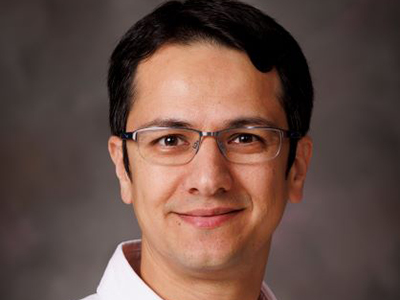DWFI welcomes nine new Faculty Fellows
DWFI is pleased to welcome its newest Faculty Fellow cohort. Faculty Fellows are faculty within the University of Nebraska system who contribute to the Institute’s research, scholarship, engagement and education programs. Faculty Fellow status gives formal recognition of an individual’s accomplishments and expertise and includes the Fellow in a community of faculty with complementary interests. Additionally, Faculty Fellows are eligible to apply for DWFI student support to fund an undergraduate, graduate or doctoral student.
New Faculty Fellows include:

Patrick Bitterman
Assistant Professor
School of Global Integrative Studies, University of Nebraska-Lincoln

Aaron Lee M. Daigh
Associate Professor
Biological Systems Engineering, University of Nebraska - Lincoln



Kristina Kintziger
Associate Professor
College of Public Health, University of Nebraska Medical Center

Kelly Helm Smith
Research Assistant Professor
National Drought Mitigation Center, School of Natural Resources, University of Nebraska-Lincoln

Saleh Taghvaeian
Associate Professor
Department of Biological Systems Engineering, University of Nebraska-Lincoln

Yujia Wang
Assistant Professor of Practice
Landscape Architecture, College of Architecture, University of Nebraska-Lincoln

FY 2023 Annual Report
- Overview
- Introduction
-
Research and Policy
-
Global
- Brazilian agricultural state looks to Nebraska and DWFI to sustainably manage water resources
- Irrigation equipment ownership not always best for smallholder farmers
- McCornick and Neale re-elected to World Water Council, DWFI involved in preparations for the World Water Forum
- Understanding the agtech ecosystem in India can spur future investments
-
Regional + National
- DAWN Project testing its decision-support tools with corn and soybean growers
- Water Center director helps City of Lincoln find second water source
- Water, Climate and Health program makes an impact in Nebraska
- DWFI's flux tower network now helps validate carbon credits
- Understanding climate’s effect on the health of Americans
- Groundwater transfer success stories guide water managers in meeting local water needs
- Advancements in crop modeling help adapt to climate change
-
Global
-
Education
- Faculty Fellows
-
Supported Students
- DWFI funds eight new students working on mission-related projects
- DWFI continues support of Platte Basin Timelapse interns
- Estimation of manure nutrient capacity in Nebraska minimizes water quality impacts
- Could cover crops replace offset in-season corn fertilizer?
- Congratulations to DWFI-supported student graduates
-
Communication
- Digital and online engagement connects DWFI with its global audience
- Coverage of DWFI research and events reaches more than 219 million people
- Creative storytelling used to amplify DWFI smallholder irrigation research outputs
- DWFI expertise tapped for national reports and publications
- DWFI staff receive well-deserved recognition
- 2022 Nebraska Water Center Annual Report now available
-
Outreach and Events
- Global Conference draws international audience to address water and food security
- On-farm event in Western Nebraska strengthens partnerships, spurs new ideas
- Engagement recovers to pre-pandemic levels
- Drought at forefront of discussions at Platte River Basin Conference
- 49th Annual Water Tour broadens knowledge about Nebraska water
- Nebraska Water Center seminars focus on hot topics in Nebraska Water
- Development
- Resources
- Search
FY 2023 Annual Report
- Overview
- Introduction
-
Research and Policy
-
Global
- Brazilian agricultural state looks to Nebraska and DWFI to sustainably manage water resources
- Irrigation equipment ownership not always best for smallholder farmers
- McCornick and Neale re-elected to World Water Council, DWFI involved in preparations for the World Water Forum
- Understanding the agtech ecosystem in India can spur future investments
-
Regional + National
- DAWN Project testing its decision-support tools with corn and soybean growers
- Water Center director helps City of Lincoln find second water source
- Water, Climate and Health program makes an impact in Nebraska
- DWFI's flux tower network now helps validate carbon credits
- Understanding climate’s effect on the health of Americans
- Groundwater transfer success stories guide water managers in meeting local water needs
- Advancements in crop modeling help adapt to climate change
-
Global
-
Education
- Faculty Fellows
-
Supported Students
- DWFI funds eight new students working on mission-related projects
- DWFI continues support of Platte Basin Timelapse interns
- Estimation of manure nutrient capacity in Nebraska minimizes water quality impacts
- Could cover crops replace offset in-season corn fertilizer?
- Congratulations to DWFI-supported student graduates
-
Communication
- Digital and online engagement connects DWFI with its global audience
- Coverage of DWFI research and events reaches more than 219 million people
- Creative storytelling used to amplify DWFI smallholder irrigation research outputs
- DWFI expertise tapped for national reports and publications
- DWFI staff receive well-deserved recognition
- 2022 Nebraska Water Center Annual Report now available
-
Outreach and Events
- Global Conference draws international audience to address water and food security
- On-farm event in Western Nebraska strengthens partnerships, spurs new ideas
- Engagement recovers to pre-pandemic levels
- Drought at forefront of discussions at Platte River Basin Conference
- 49th Annual Water Tour broadens knowledge about Nebraska water
- Nebraska Water Center seminars focus on hot topics in Nebraska Water
- Development
- Resources
- Search
Related Articles
DAWN Project testing its decision-support tools with corn and soybean growers
The Dashboard for Agricultural Water Use and Nutrient Management (DAWN) project aims to support farmers in translating seasonal climate predictions.
Interviews provide insights for drought and public health roadmap
Rachel Lookadoo is a DWFI Faculty Fellow and the Director of Public Health Policy for the Water, Climate, and Health program.
Creative storytelling used to amplify DWFI smallholder irrigation research outputs
The DWFI communications team has capitalized on engagement growth in the digital space as a result of the pandemic.
COOKIE USAGE:
The University of Nebraska System uses cookies to give you the best online experience. By clicking "I Agree" and/or continuing to use this website without adjusting your browser settings, you accept the use of cookies.

